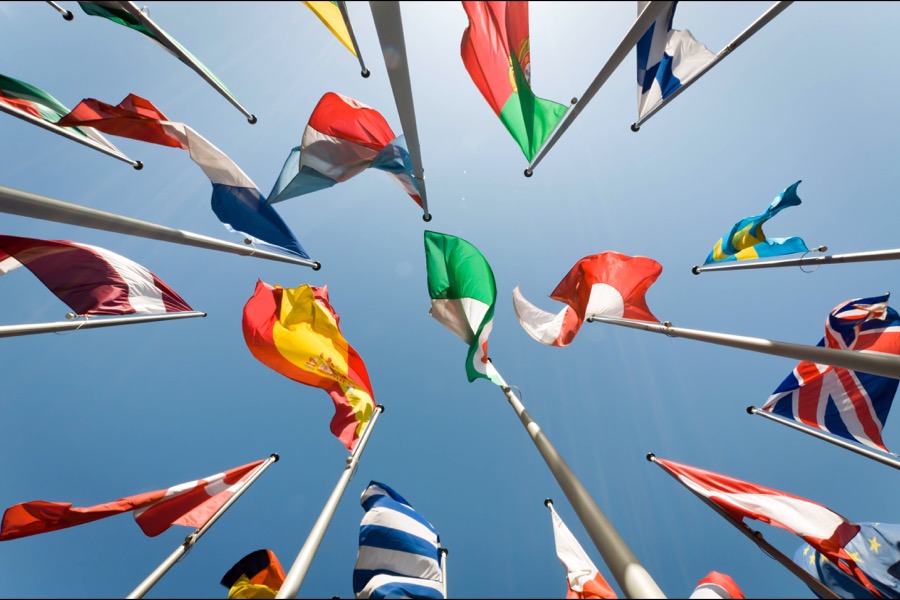In our modern political world, politicians are particularly aware of the importance of words. At the White House, key advisers gather around the table before an important Presidential speech and fight for hours over a single word or phrase. What message does it send? Is it too harsh or too strident?
In political campaigns, obscene amounts of money are given to consultants who claim they can put together the right combination of fifteen or twenty words that will guarantee the candidate a "sound bite" on the evening news. A poorly turned phrase or the use of a word in an inappropriate way can end a political career or make its speaker appear insensitive or stupid.
By and large, the days are gone when a statesman crafted his own words into speeches or articles. Half of Washington seems to be made up of wordsmiths who ghost write for the other half of Washington. Words are too important to be left to the candidate himself.
Remember the phrase "kinder and gentler" that President Bush used to describe what America would be like if he were President? Many political pros feel it delivered exactly the right signal to wavering female voters and helped give them a reason to vote for him. Whether the analysis is true or not, the phrase didn't come to the President as he labored deep into the evening on the speech that would define his program. It came from Peggy Noonan, a bright, young speech writer who can turn a phrase with the best of them. She also created the memorable line, "Read my lips: no new taxes." And George Bush's subsequent abandonment of this memorable pledge, coupled with a seemingly poor performance of the economy, led to his 1992 defeat by Bill Clinton.
In America's cultural civil war, words are the bullets used between the two sides, each contending for the hearts and minds of those Americans who have not made their choice of where to stand. Once again, however, the forces hostile to family, faith, and tradition seem to have the inside track. Controlling most of the major instruments of communication, they are able to manipulate words and their meanings over time, in order to advance the modernist agenda.
The adversary culture understands instinctively "...that language shapes thoughts, that choice of words can therefore have political and social consequences, that an impoverished vocabulary can impoverish thought."
And that is exactly what has happened in America in recent years. Almost imperceptibly some words have disappeared from our vocabulary. Words like "virtue," for example, or "chastity," are considered hopelessly out of date. Their use in public debate brings forth a round of snickers and nervous laughter.
There is no logical reason for this development. To be chaste or pure has been a noble goal for thousands of years. One only has to open a newspaper or listen to the first five minutes of the evening news to discover the price we pay for the ignoring of virtue among our public servants. Jefferson said only a virtuous people can remain free. Today, in place of virtue we talk about values and, of course, we are constantly reminded that they are relative. Virtue doesn't lend itself to relativism.
While we are remembering old words, dead before their time, how about "evil"? Evidence of it is everywhere but no one dares speak its name. When a "wolf pack" of teenage boys set upon a nighttime jogger in Central Park, raped her, beat her senseless, and left her lying in a pool of her own blood, the airways and newspapers were filled with explanations.
We were told these were disadvantaged youth, as if poverty could ever justify wanton barbarism. "A crowd psychology took over," said another learned mind. "We must understand the root causes," intoned a talk show guest. Yet no one in the cultural elite was willing to call this act what it surely and unmistakably was--evil. We saw again how liberal rationalizations have undermined our jury system when, in 1993, Damian "Football" Williams was acquitted of attempted murder because he had been caught up in the L.A. riot of 92.
One of Ronald Reagan's most controversial speeches was delivered at a conference in Florida in which he referred to the Soviet Union as an "evil empire." The full wrath of the secular establishment quickly fell down upon his head. Clearly the Soviet Union is an empire; from Lenin to Stalin to Gorbachev, it has waged countless campaigns against its own citizens that can only be described as evil--including the massacre of more than twenty million dissidents in the years leading up to World War II--but the liberal media were shocked at the President's choice of words.
Even after the collapse of the Soviet Union, and after men like Boris Yeltsin and Aleksandr Solzhenitsyn had confirmed it was an evil empire, liberal journalists and academics have denied Reagan credit for his great achievement. He re-moralized the cold war and inspired Americans to win it. Liberals continued to disparage Ronald Reagan even as the Berlin Wall he hated collapsed before their eyes. They viewed Reagan as simplistic and moralistic for raising questions of good and evil.
If some things, or people, or acts, are evil, then it follows that others are good. This then leads to judgments about how we live our lives and how others live theirs. But the whole message of popular culture is the exact opposite. From the teenagers who rape a defenseless woman and then celebrate the act by singing "rap" songs about it in their prison cell, to the legacy of a totalitarian state responsible for immeasurable pain and suffering, who is to say such things are "evil"? The very word is becoming extinct.
Book: Children at Risk
By Dr. James Dobson and Gary Bauer


